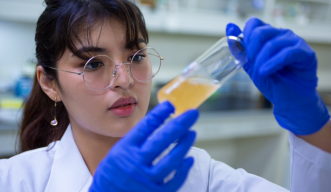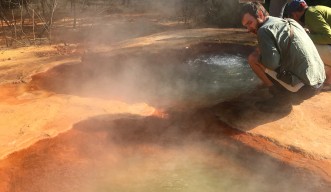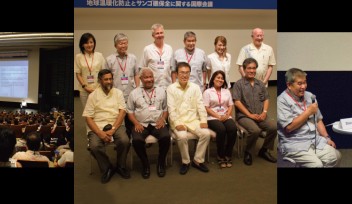Seminar by Fatima Li Hau

Fatima Li-Hau, Takeshi Kakegawa, Mayuko Nakagawa, L.M. Ward, Ueno Yuichiro, Shawn Erin McGlynn
The ecology of Earth’s early biosphere remains largely unconstrained. One strategy is the study of analogue environments, which might shed light on which organisms and activities were present on early Earth. Iron-rich hot springs are representative of environments around the time of the Great Oxidation Event (GOE) and abundant yet understudied in Japan (Ward et al., 2017, 2019). The GOE (~ 2.4 Gya) is one of the major geological events our planet has experienced; characterized by the steep rise of oxygen in the atmosphere and oceans, mainly due to the proliferation of oxygenic photosynthetic organisms. Here, I present metagenomic and geochemical analyses aimed at elucidating the metabolic potential of the communities of five iron rich hot springs of Japan. The findings revealed the presence of complete carbon, nitrogen, iron, and sulfur cycles. Iron oxidizers from the Zetaproteobacteria and Gammaproteobacteria appear to dominate as primary producers, even in the presence of Cyanobacteria, suggesting competitive dynamics that may favor iron oxidizers over oxygenic phototrophs under specific conditions. Although unique taxonomic patterns exist between the springs, their overall metabolic potential was surprisingly similar. The generation of metagenome assembled genomes (MAGs) and the phylogenetic placement of key enzymes in them such as nitrogenases and cytochromes also allowed us to unravel the specific contributions of organisms to their communities. These findings highlight the importance of characterizing an environment from different approaches to have a coherent view of its ecology and offer a glimpse at the dynamics of a yet unexplored ecosystem.
Article Information
Research Unit














